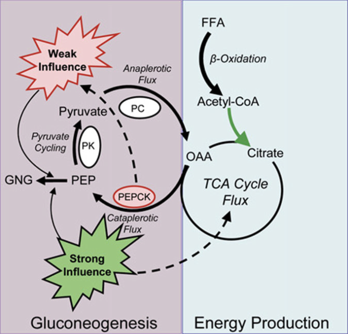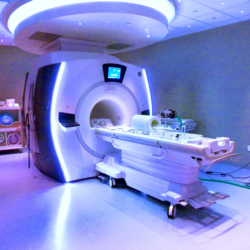All high-impact diseases are associated with abnormal fluxes in biochemical pathways. We have a great deal of knowledge about metabolism in disease, based on animal and cell experiments, yet little of that information can actually be used in management of an individual patient because of limitations in technology. Our purpose is to provide personalized metabolic exams in patients. The methods offer significant advantages compared to current studies: superior information about biochemical pathways, absence of ionizing radiation, and simple integration with standard imaging methods.
This project involves developing a new class of hyperpolarized 13C- and 15N-enriched compounds as magnetic resonance reporters of tissue physiology and metabolism. We will apply these hyperpolarized sensors to image whole-body glucose production and measure important biomarkers such as pH and free Zn levels. If successful, this technology could have a substantial impact in managing diseases such as metabolic syndrome, type 2 diabetes, and cancer by providing access to metabolic information not achievable using any other imaging modality.




